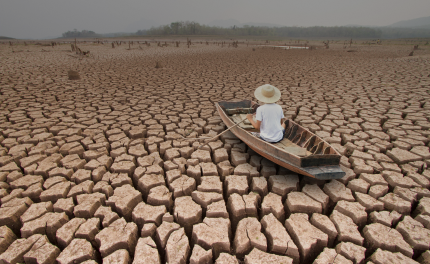Home > Project Overview > The Problem
Science education has for too long failed to connect with students’ lives, interests, and concerns. Multiple decades of research have shown that students’ motivation to engage with science and attitudes towards science decrease significantly during late elementary and middle school. By age 14, many children already have a clear idea that science is not for them. On the other hand, students are faced with global socio-scientific issues such as pandemics, climate change, and diminishing biodiversity, that are reshaping basic aspects of their present and future lives.
We refer to these complex and multifaceted issuesas Grand Challenges (GCs).

Despite students’ growing concern with the GCs, school science typically focuses on conveying scientific principles with little or no connection to these relevant real-world social issues that are informed by science. In an international survey of 11,000 students, nearly all expressed a desire to learn about GCs in school, yet only few reported having opportunities to do so. This discrepancy between school science and relevant issues is especially apparent in Fridays for Future, a global movement, where the main modality of protest is a school strike. Rather than seeing school as a place for engaging with GCs and working towards solutions, students are choosing to abandon their classrooms in order to have an impact on the issues that will shape their future.

The Grand Challenges project is the first step in an ambitious long-term project to restructure middle school science education around GCs and students’ desire to be well-informed and to develop agency with respect to these issues. Rather than attempting a survey of principles in each discipline as is typical in middle school science, we focus on ideas that are critical for understanding the GCs of the world that students are set to inherit. In this way, we advance a science education to prepare a citizenry that is well-equipped to understand and evaluate issues that have profound impacts on the natural environment and society.

Achieving this vision for a restructured middle school science will require a long-term initiative involving coordinated efforts linking GC units and assessments, teacher supports and professional learning, and school and district buy-in. In the future, we envision a dynamic, technology-based system that facilitates open sharing of materials, networked communities of practitioners, curriculum designers, and researchers.
Unlike static modules and textbooks typical of additional science curriculum, this dynamic platform will make it possible to update materials as new insights, data sets, and resources for focal GCs become available.


Develop four 3 25 hour-long GC units with associated assessments, to be interspersed throughout 7th grade science.

Collaborate with middle school science teachers to enact, study, and revise the GC units.

Conduct research on student outcomes associated with the GC units and factors that impact the feasibility and quality of GC-oriented learning experiences in middle school science.
This website is the result of work supported by the National Science Foundation under Grant DRL-2201192. Any opinions, findings, and conclusions or recommendations expressed in the website are those of the PIs and do not necessarily reflect the views of the National Science Foundation.
Designed and developed by EduCore, The Department of Science Teaching, Weizmann Institute of Science.